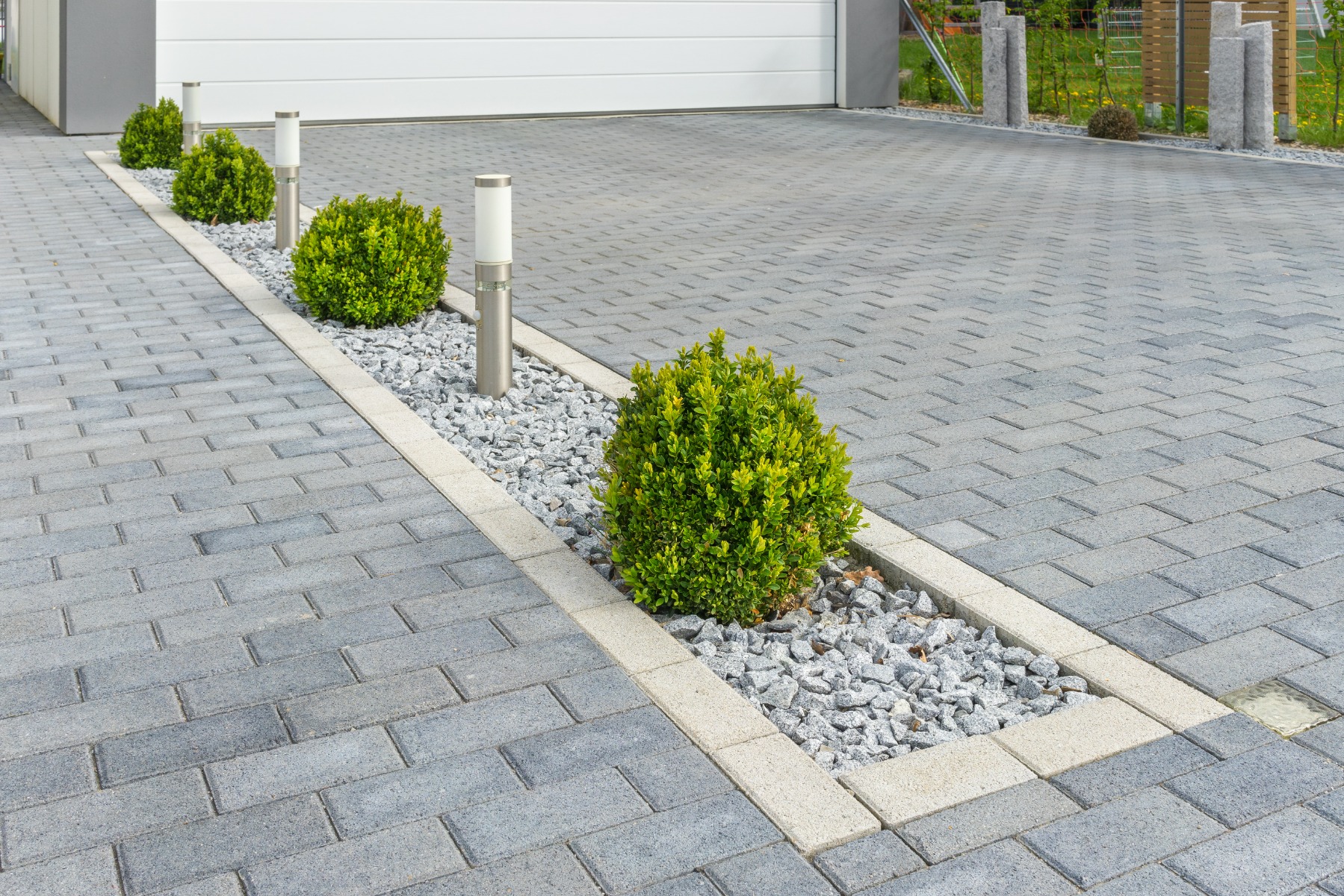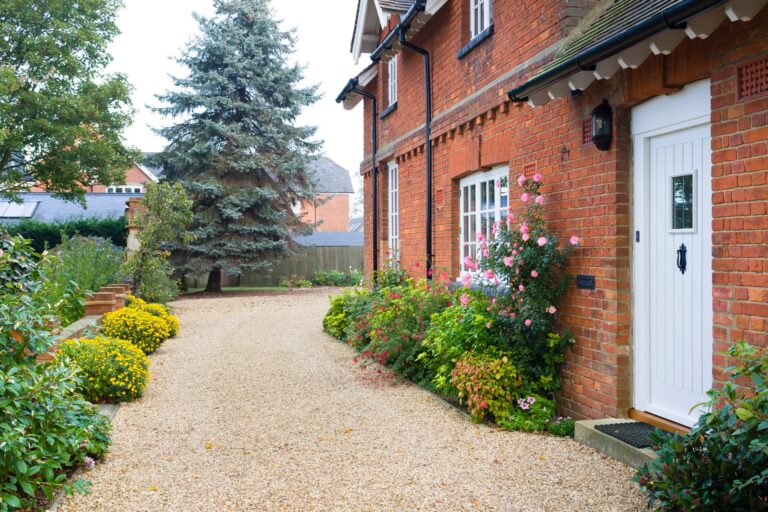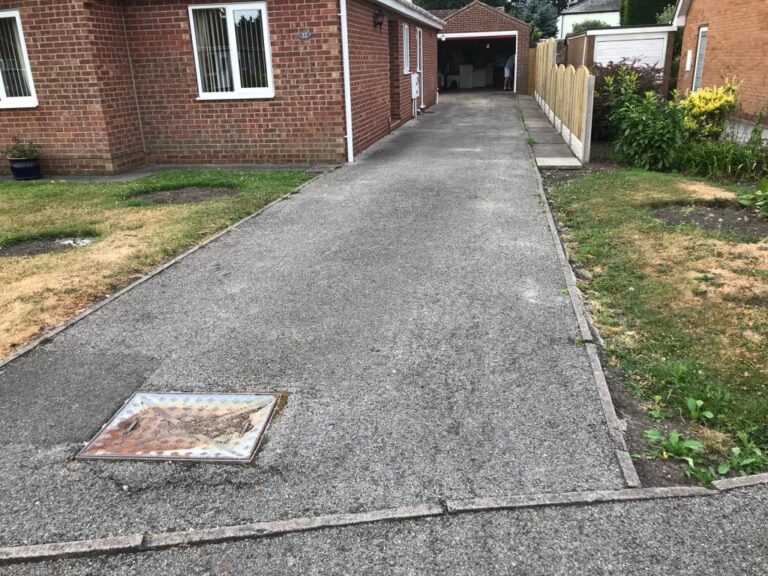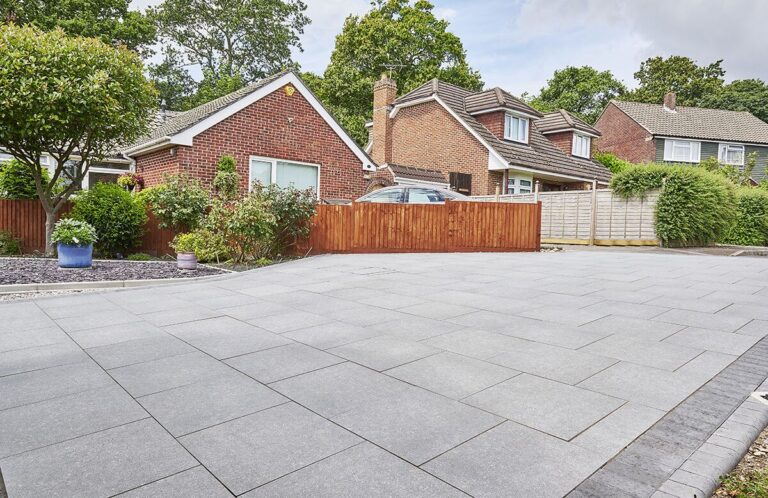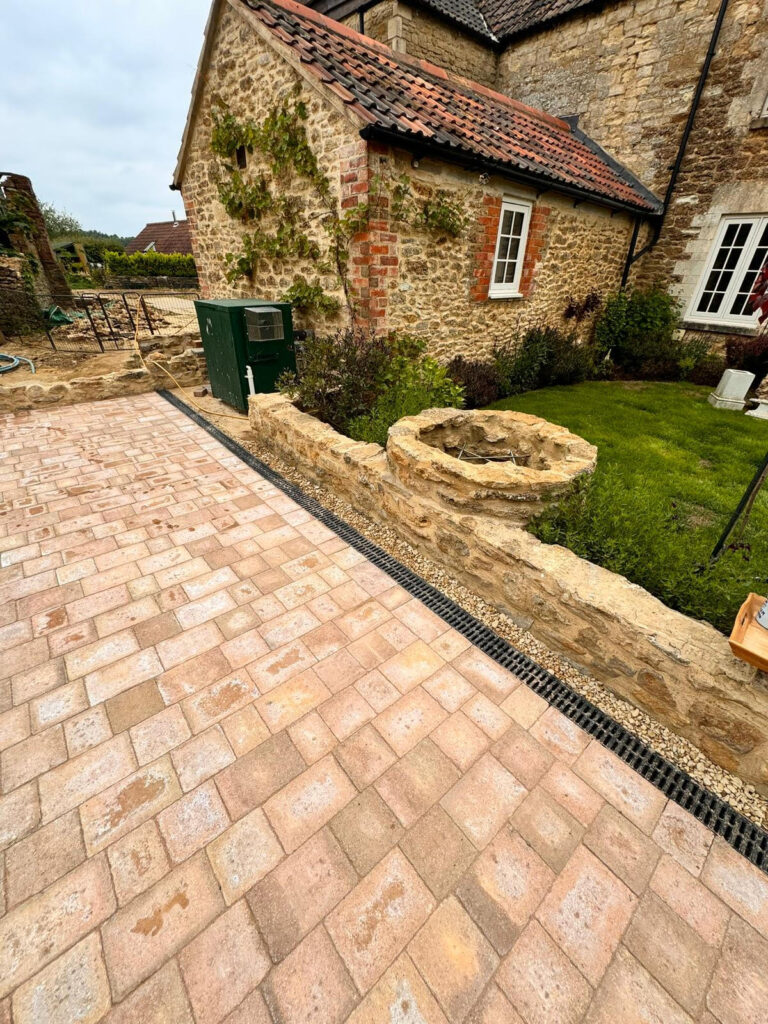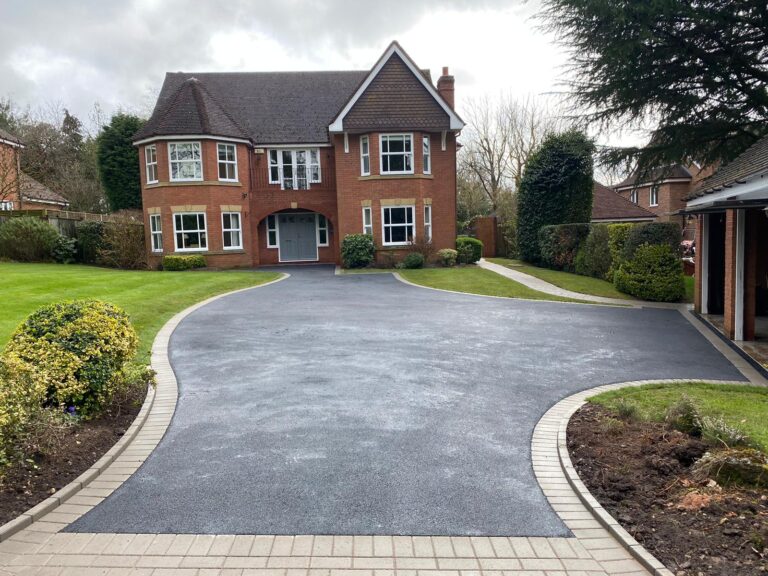A driveway is an essential part of your home’s exterior, and its lifespan can have a significant impact on both the aesthetics and functionality of your property.
The durability of a driveway depends largely on the material used, as well as factors such as climate, maintenance, and the amount of traffic it experiences.
Understanding how long different driveway materials typically last and what can affect their longevity is crucial when choosing the right material for your home.
Below, we discuss the expected lifespan of various common driveway materials and the factors that influence their longevity.
1. Tarmac Driveways
Tarmac (or asphalt) is one of the most common driveway materials in the UK due to its affordability and quick installation. On average, a well-maintained tarmac driveway can last between 15 and 20 years. However, its longevity depends on several factors, including the quality of installation, weather conditions, and the level of traffic it experiences.
Factors affecting lifespan:
- Installation quality: Proper site preparation and a high-quality mix of materials are essential to ensure that the tarmac lasts as long as possible.
- Weather conditions: Extreme temperatures, especially freezing and thawing cycles in winter, can cause cracks and deterioration in tarmac driveways.
- Maintenance: Regular sealing can help prolong the life of a tarmac driveway, as it prevents water from penetrating and causing damage. Without sealing, tarmac may require repairs every 5 to 10 years.
Prolonging lifespan: To extend the lifespan of your tarmac driveway, it’s important to reseal it every few years and repair any cracks or potholes promptly to prevent further deterioration.
2. Block Paving Driveways
Block paving is a popular choice for its aesthetic appeal and versatility. Made from concrete or clay blocks, it can last between 25 and 30 years if properly maintained. Block paving is highly durable and resistant to wear and tear, making it a great option for driveways with heavy traffic.
Factors affecting lifespan:
- Quality of materials: High-quality blocks made from durable concrete or clay will last longer. The type of jointing sand used and the method of installation also play a role in longevity.
- Weeds and moss: Without proper maintenance, weeds and moss can grow between the blocks, which may cause shifting or instability over time.
- Traffic load: Heavy vehicles or frequent use can cause the blocks to shift, leading to an uneven surface that may require repairs.
Prolonging lifespan: Regular cleaning and re-sanding of joints can help prevent weed growth. Applying a sealant also keeps the blocks in good condition by reducing the chances of moss or algae growth.
3. Gravel Driveways
Gravel is a cost-effective and traditional choice for many homeowners. Gravel driveways typically last around 10 to 15 years, but their longevity depends on the type of gravel used, as well as the amount of maintenance they receive.
Factors affecting lifespan:
- Type of gravel: The quality and size of the gravel used will impact how well it holds up over time. Larger stones tend to stay in place better than smaller gravel, which can shift more easily.
- Traffic: Gravel driveways can be easily displaced by heavy vehicles, leading to uneven surfaces and the need for replenishing the gravel.
- Drainage issues: Poor drainage can cause gravel to wash away or settle unevenly, especially in areas with heavy rainfall.
Prolonging lifespan: To maintain your gravel driveway, regularly rake and replenish the gravel to ensure an even surface. Installing edging and ensuring proper drainage will also help prevent gravel from washing away and keep the surface intact for longer.
4. Resin-Bound Driveways
Resin-bound driveways are an increasingly popular choice due to their smooth, attractive finish and durability. Made from natural aggregates mixed with resin, resin-bound driveways can last between 15 and 25 years. Their longevity is largely dependent on the quality of installation and the conditions they are exposed to.
Factors affecting lifespan:
- UV exposure: UV rays from the sun can cause the resin to degrade over time, especially if low-quality resin is used. However, high-quality UV-resistant resins can last longer without significant fading or cracking.
- Traffic: Resin-bound driveways are durable and can handle heavy traffic, but excessive weight or heavy vehicles can cause damage to the surface.
- Drainage: Like other driveway materials, resin-bound surfaces require good drainage to prevent water pooling, which could lead to cracks or other damage.
Prolonging lifespan: To extend the life of a resin-bound driveway, ensure proper installation, including appropriate drainage, and clean the surface regularly to prevent moss or algae growth. Recoating the surface after 10 to 15 years can also help refresh its appearance and functionality.
5. Concrete Driveways
Concrete driveways are known for their durability and versatility. They can last anywhere from 30 to 40 years, making them one of the longest-lasting driveway materials available. Concrete driveways are resistant to cracking and weathering but can become damaged if not installed correctly or if proper maintenance is neglected.
Factors affecting lifespan:
- Cracking: Concrete can crack over time due to extreme weather, poor installation, or soil movement underneath. Sealing the surface can prevent moisture from penetrating and causing further cracking.
- Traffic load: Heavy vehicles can cause concrete to wear or crack over time, especially if the driveway is improperly reinforced.
- Maintenance: Concrete driveways should be cleaned regularly and sealed every few years to prevent staining and wear.
Prolonging lifespan: To extend the life of your concrete driveway, ensure proper installation, regularly clean it, and reseal the surface every few years. Address any cracks or damage immediately to prevent further deterioration.
The lifespan of your driveway depends largely on the material you choose and how well it is maintained.
Tarmac and gravel driveways generally last 10 to 20 years, while block paving and resin-bound surfaces can last between 15 and 30 years.
Concrete driveways, when properly maintained, can last up to 40 years.
Regular cleaning, sealing, and prompt repairs can significantly extend the life of your driveway and help you get the most value out of your investment.
Keep in mind that factors like weather conditions, traffic, and installation quality all play a role in how long your driveway will last, so it’s essential to consider these aspects when choosing the right material for your home.

